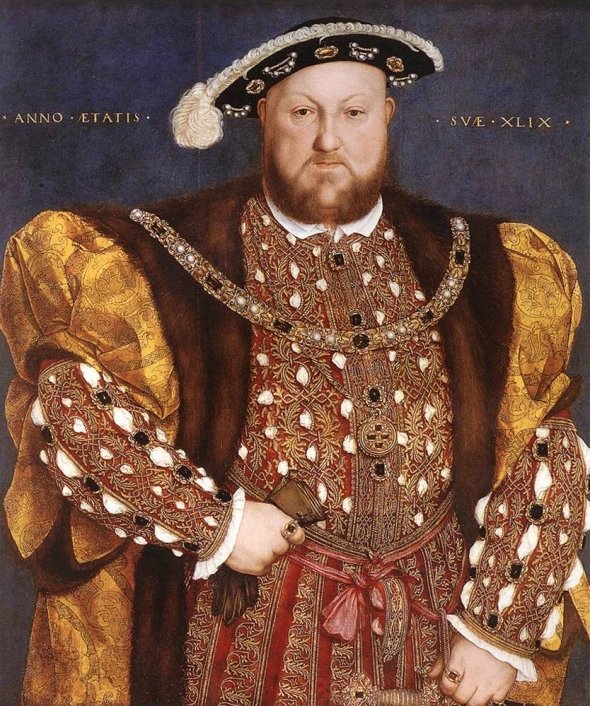How would we be able to remember all the most essential information of the world — like the colors of the rainbow (in correct order), the planets of our solar system (in the order in which they radiate out from the sun), or what happened to each of Henry VIII’s wives (in chronological order) — without that magical thing called a mnemonic? (The word, whose initial m is silent, is derived from the ancient Greek mnemonikos, meaning “of memory”, and is related to Mnemosyne, the goddess of memory in Greek mythology; both words come from mneme — “remembrance” or memory”.) This strangely named device is created specifically to aid in the retention and memorization of information; it can come in different forms, but is usually verbal, ie. a short poem, an acronym (see Glossophilia’s earlier post on acronyms here), or a word or phrase made memorable by dint of its humor, absurdity or easy rhyme. Our childhoods and especially our classrooms stocked our minds with these memory aids that are more enduring and accessible than Google or any other encyclopedic resource. Who needs an app to remember how many days are in the current month, whether to spell it receive or recieve, and whether to set your clocks an hour later or earlier when we have our mnemonics permanently on tap?
Here’s a selection of those that have stuck around in my cerebellum for decades, bouncing forward like Beatles lyrics when their services are called upon, and then tucked away for safekeeping until the next time a list of England’s monarchs is needed.
Am I forgetting any? …
Richard Of York Gave Battle In Vain — colors of the rainbow (red, orange, yellow, green, blue, indigo, violet)
 My Very Educated Mother Just Showed Us Nine Planets — planets in the solar system (before Pluto was disqualified)
My Very Educated Mother Just Showed Us Nine Planets — planets in the solar system (before Pluto was disqualified)
Spring forward, fall back — how to reset your clocks at the beginning and end of daylight savings time 
Every Good Boy Deserves Fun — notes on the lines of the treble clef
FACE — notes in the spaces of the treble clef 
Good Bikes Don’t Fall Apart — notes on the lines of the bass clef
All Cows Eat Grass — notes in the spaces of the bass clef
No Plan Like Yours To Study History Wisely — the royal houses of the English monarchy (Norman, Plantagenet, Lancaster, York, Tudor, Stuart, Hanover, Windsor)
Large Elephants Jump Slowly and Sink Rapidly — the seven articles of the US Constitution (legislative, executive, judicial, supremacy, amendment, statehood, ratification) ![]()
 Divorced, beheaded, died; divorced, beheaded, survived — the respective fates of Henry VIII’s wives
Divorced, beheaded, died; divorced, beheaded, survived — the respective fates of Henry VIII’s wives
Please Excuse My Dear Aunt Sally — the order of operations in mathematics (parentheses, exponents, multiply, divide, add, subtract)
Every Acid Dealer Gets Busted Eventually — notes of standard-tuned guitar strings 
I before E, except after C — a spelling reminder
When two vowels go walking, the first one does the talking — another spelling aid
HOMES — North America’s great lakes (Huron, Ontario, Michigan, Erie, Superior)
Number of days in each month:
Thirty days hath September,
April, June, and November;
All the rest have thirty-one,
Save February, with twenty-eight days clear,
And twenty-nine each leap year.
English monarchs – in chronological order of reign:
Willie, Willie, Harry, Stee,
Harry, Dick, John, Harry three;
One, two, three Neds, Richard two
Harrys four, five, six… then who?
Edwards four, five, Dick the bad,
Harrys twain VII VIII and Ned the Lad;
Mary, Bessie, James the Vain,
Charlie, Charlie, James again…
William and Mary, Anna Gloria,
Four Georges I II III IV, William and Victoria;
Edward seven next, and then
George the fifth in 1910;
Ned the eighth soon abdicated
Then George the sixth was coronated;
After which Elizabeth
And that’s the end until her death.
2012 update:
Now it’s Liz, then we’ll arrive . . .
At Charlie three, then William five.


Mrs D, Mrs I, Mrs F, F, I, Mrs C, Mrs U, Mrs L, T, Y
And
Big Elephants Can ( or can’t) Always Understand Small Elephants. Because